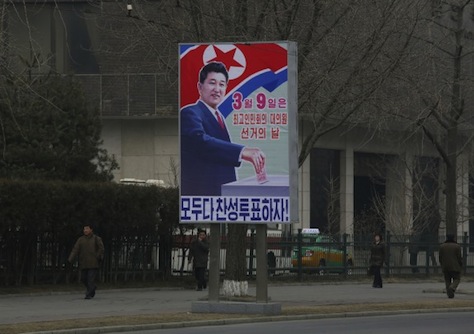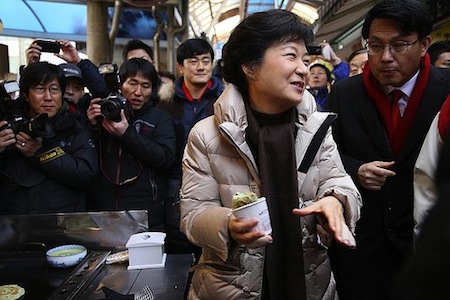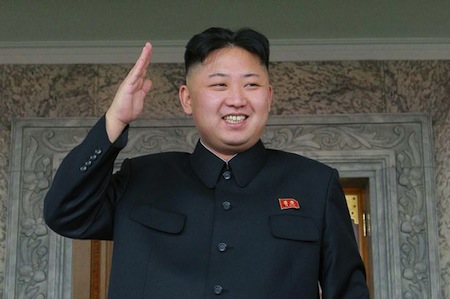It’s possible that North Korea’s leader, Kim Jong-un, was temporarily removed from his position as the head of state of his country of 24.9 million during his 40-day absence from public view, which ended this week when North Korea’s news agency released photographs showing Kim on a ‘field guidance’ trip to a new residential complex. ![]()
It’s possible that Kim was never more than a figurehead, with the real power lying inside the secretive Organization and Guidance Department and with the North Korean military forces.
It’s possible that Kim is a figurehead, but his younger sister Kim Yo-jong is actually holding the true reigns of power.
It’s possible, as Zachery Keck writes today in The Diplomat, that this entire saga shows that North Korea is becoming more transparent under Kim Jong-un.
It’s possible that Kim wasn’t actually responsible for the purge of his powerful uncle, Jang Sung-taek, last December, along with several other top-ranking officials close to the rule of his father, Kim Jong-il. Instead, Kim’s enemies may have effected Jang’s execution to send the young Kim a message about who really controls the Democratic People’s Republic of Korea (DPRK).
It’s possible that under Xi Jinping, the People’s Republic of China is weary of making excuses for a regime that much of the rest of the world disregards, except as a potential nuclear nuisance to be contained and otherwise isolated.
It’s possible that the overweight Kim really was suffering from health problems that caused him to walk with a limp before his disappearance. That explains why, perhaps, he reappeared in photos earlier today, after a 40-day absence, using a cane, and following rumors that he suffered from an ankle injury and/or from gout.
It’s possible that the photos released aren’t even from yesterday, but recycled from a previous event or doctored.
In the depths of Kim’s disappearance, it was even possible that North Korea’s military leadership has staged a coup, and the high-profile trip by Hwang Pyong-so to Incheon for the Asian Games last week was the first step in what could be the process of reunification with South Korea. If and when South Korean reunification comes, it may come suddenly and unexpectedly.
But no one knows for sure what Kim’s absence signifies — and you shouldn’t trust anyone who says that they do know, because North Korea politics are still so incredibly opaque to the outside world. Continue reading None of us knows anything about Kim Jong-un




